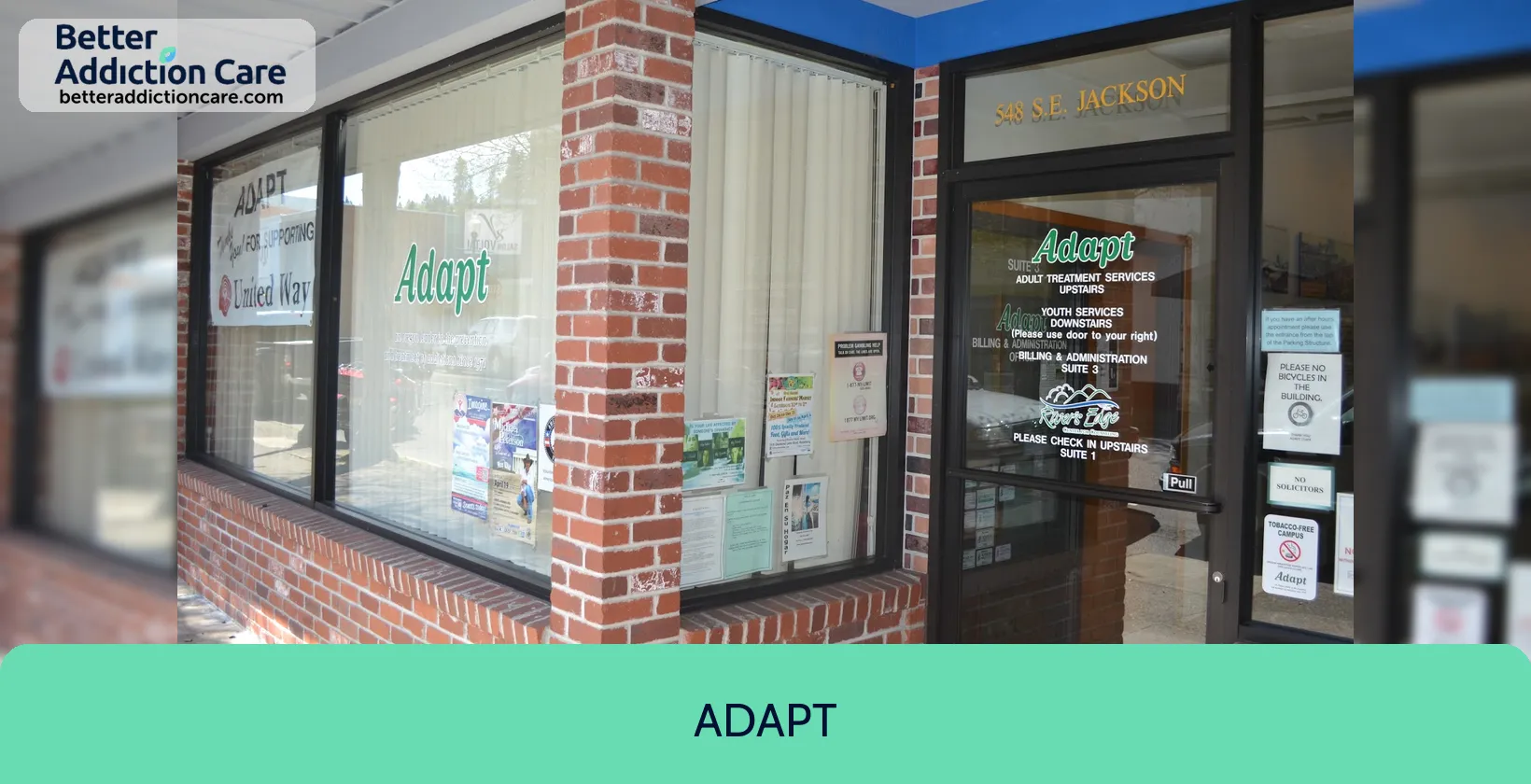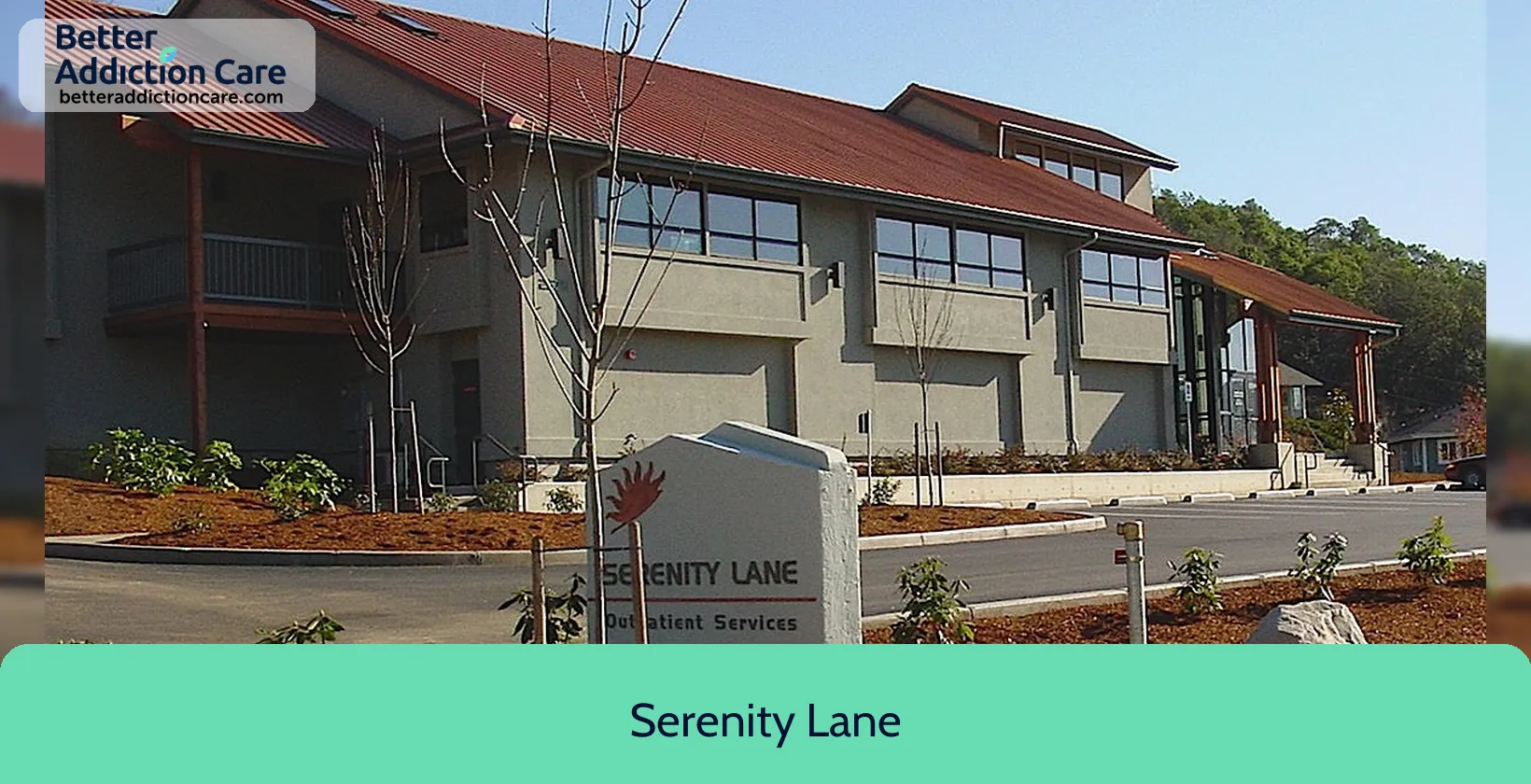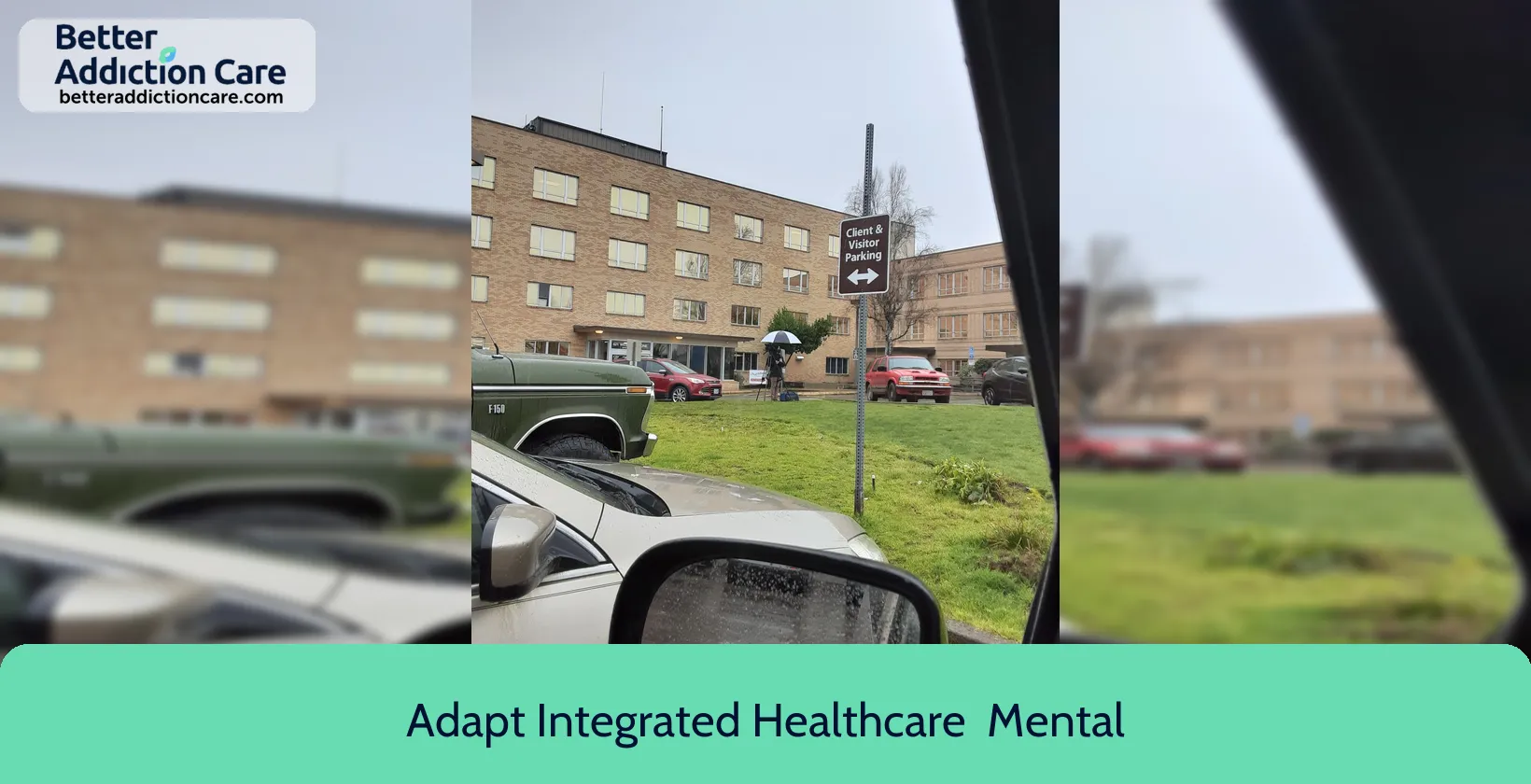
Overview
ADAPT 3099 Diamond Lake Boulevard NE is a substance abuse treatment center for people seeking treatment near Douglas County. As part of their treatment modalities for recovery, ADAPT 3099 Diamond Lake Boulevard NE provides cognitive behavioral therapy, substance use disorder counseling, and trauma-related counseling during treatment. ADAPT 3099 Diamond Lake Boulevard NE is located in Roseburg, Oregon, accepting cash or self-payment for treatment.
ADAPT 3099 Diamond Lake Boulevard NE at a Glance
Payment Options
- Cash or self-payment
- Medicaid
- State-financed health insurance plan other than Medicaid
- Private health insurance
- Federal, or any government funding for substance use treatment programs
Assessments
- Screening for tobacco use
- Comprehensive mental health assessment
- Comprehensive substance use assessment
- Interim services for clients
- Outreach to persons in the community
Age Groups
- Young adults
- Adults
- Seniors
Ancillary Services
- Case management service
- Integrated primary care services
- Suicide prevention services
- Residential beds for client's children
- Child care for client's children
Highlights About ADAPT 3099 Diamond Lake Boulevard NE
7.56/10
With an overall rating of 7.56/10, this facility has following balanced range of services. Alcohol Rehabilitation: 8.00/10, Drug Rehab and Detox: 8.77/10, Insurance and Payments: 6.00/10, Treatment Options: 7.46/10.-
Drug Rehab and Detox 8.77
-
Alcohol Rehabilitation 8.00
-
Treatment Options 7.46
-
Insurance and Payments 6.00
Accreditations
State department of health:

Government agencies issue State Licenses, granting permission to rehabilitation organizations to conduct their business operations lawfully within specific geographic regions. Generally, the particular rehabilitation programs offered by a facility and its physical location dictate the necessary licenses needed for legal operation.
Federally Qualified Health Center:
Federally Qualified Health Center (FQHC) accreditation is a process of evaluation and recognition by the federal government for community health centers that provide comprehensive and accessible healthcare services to underserved populations. FQHC accreditation is essential for centers to receive federal funding and to ensure that they meet standards for quality, patient-centered care.
Treatment At ADAPT 3099 Diamond Lake Boulevard NE
Treatment Conditions
- Alcoholism
- Substance use treatment
Care Levels
- Hospital inpatient/24-hour hospital inpatient
- Short-term residential
- Residential detoxification
- Hospital inpatient detoxification
- Hospital inpatient treatment
Treatment Modalities
- Cognitive behavioral therapy
- Substance use disorder counseling
- Trauma-related counseling
- Smoking/vaping/tobacco cessation counseling
- Group counseling
Ancillary Services
Languages
- Sign language services for the deaf and hard of hearing
Additional Services
- Pharmacotherapies administered during treatment
- Mentoring/peer support
- Breathalyzer or blood alcohol testing
Special Programs
- Clients with co-occurring mental and substance use disorders
- Pregnant/postpartum women
- Clients who have experienced trauma
- Clients who have experienced intimate partner violence, domestic violence
- Clients with co-occurring pain and substance use disorders
Get Help Now
Common Questions About ADAPT 3099 Diamond Lake Boulevard NE
Contact Information
Other Facilities in Roseburg

6.97

7.64

7.80

7.16

6.68
DISCLAIMER: The facility name, logo and brand are the property and registered trademarks of Adapt Integrated Healthcare - Mental Healthcare, and are being used for identification and informational purposes only. Use of these names, logos and brands shall not imply endorsement. BetterAddictionCare.com is not affiliated with or sponsored by Adapt Integrated Healthcare - Mental Healthcare.
